A Recession is Coming! Are You Prepared? 7 Easy Ways to Prepare
A recession is coming, whether we like it or not. Every day folks like you and me need to start preparing for what’s to come. That means making a budget, cutting expenses, and saving money wherever we can. It also means being prepared for the tougher times ahead.
What is a Recession?
A recession is a significant decline in economic activity in the country lasting more than a few months. It is visible in industrial production, employment, real income, and wholesale-retail trade. The technical indicators of a recession are two consecutive quarters of a country’s gross domestic product (GDP) contracting.
A recession generally occurs when there is a widespread drop in spending (an adverse demand shock). This may be caused by an external event such as a financial crisis or an oil price shock, or it may be due to conditions within the country such as a housing market crash or an increase in interest rates.
When spending declines, so do production and employment. As companies lay off workers and reduce production, GDP growth slows and can even turn negative. A recessionary episode typically ends when GDP growth resumes. However, the labor market often lags behind the rest of the economy, so workers may continue to experience unemployment and underemployment even after the economy has recovered.
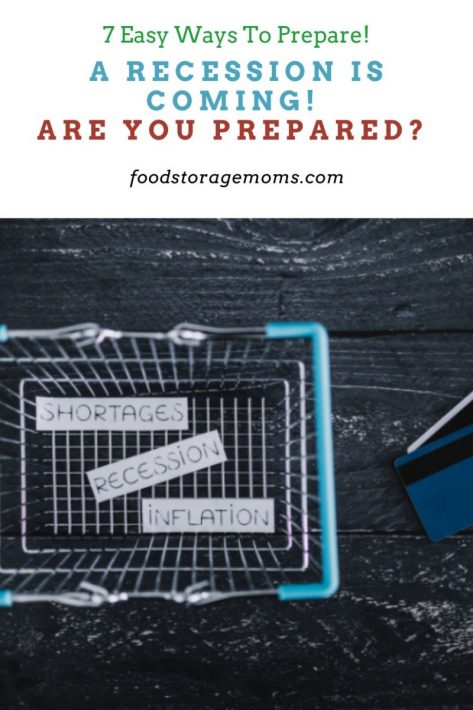
How Long Do Recessions Last?
Recessions can last anywhere from a few months to a number of years. The average recession in the United States since World War II has lasted just under a year. The longest postwar recession was from November 1973 to March 1975, when GDP growth was negative for six consecutive quarters.
The most recent recession, which began in December 2007 and ended in June 2009, was the longest and deepest since the Great Depression of the 1930s. GDP growth was negative for four consecutive quarters, making it the only recession since the Great Depression to last that long. The recession also caused a significant decline in employment, with over 8 million jobs lost from peak to trough.
What Causes a Recession?
Recessions are typically caused by a combination of factors. Most recessions are preceded by a period of economic expansion, during which time businesses and households build up debt. This can make an economy vulnerable to a downturn if conditions change.
For example, it may be sparked by a sharp increase in interest rates, causing a housing market crash and a decline in consumer spending. A recession may also be caused by a sudden decrease in demand for a country’s exports, leading to a decline in production and jobs.
In the most recent recession, a number of factors came together to create the perfect storm. The housing market crash was triggered by a combination of sub-prime mortgage lending, easy credit, and a sharp increase in home prices. This led to a wave of foreclosures and a decrease in consumer spending.
The financial crisis was caused by a combination of risky lending practices, a shortage of liquidity, and a loss of confidence in the financial system. The resulting credit crunch made it difficult for businesses to get loans and forced them to cut back on investments in equipment, research and development (R&D), and hiring.
The oil price shock added to the problem by increasing the cost of gas and other energy products. This led to a decrease in consumer spending and a decline in production. We have been seeing the same pattern over the past few months now.
What Signals A Recession?
Wallstreet says a recession is coming, but why? Well, recessions tend to come in cycles, and many say we are long overdue for one. Here are some other reasons why we may be heading for a recession:
Yield Curve
The yield curve is a key recession indicator. It’s a graph that plots the interest rates, at a set point in time, of bonds having equal credit quality but differing maturity dates. The most common yield curve compares the three-month, two-year, five-year, and 10-year U.S. Treasury debt. This yield curve is also called the Treasury yield curve. If the yield on long-term debt is close to the yield on short-term debt, it is a sign that businesses and consumers have lost confidence in those investments, particularly on a long-term basis. They take a wait-and-see approach. If people and businesses aren’t willing to invest it is a sign of bad things to come.
Interest Rates
In a healthy economy, short-term interest rates are usually lower than long-term rates. That’s because there’s normally more risk associated with lending money for a longer period. When the opposite happens and long-term rates are lower than short-term rates, it’s called an inverted yield curve. An inverted yield curve has preceded every recession in the past 50 years.
Stock Market
The stock market is a collection of markets where stocks (pieces of ownership in businesses) are traded between investors. It usually refers to the exchanges where stocks and other securities are bought and sold. The stock market can be used to measure the performance of a whole economy or particular sectors of it.
A recession is often preceded by a fall in prices, thus value, in the stock market. This happens because investors become more risk-averse and start selling their shares. As share prices fall, businesses become less valuable and may find it more difficult to raise money by issuing new shares. This can further reduce investment and spending, leading to a slump in economic growth.
Consumer Confidence
Consumer confidence is a key indicator of economic health. It measures how optimistic or pessimistic consumers are about the economy and their own financial prospects.
A high level of consumer confidence indicates that consumers are more likely to spend money, which boosts economic growth. A low level of consumer confidence indicates that consumers are more likely to save money, which can lead to a downturn.
High Debt Levels
High levels of debt can make a bad economy worse. That’s because when consumers and businesses cut back on spending, it leads to a decline in economic activity. This in turn can lead to job losses and a further decline in spending.
High levels of debt can also make it more difficult for a country to respond to the downturn. That’s because the government may need to raise taxes or cut spending to reduce the deficit. This can hurt growth and make a recession worse.
Are We Going Into a Recession?
Several economists predict that the United States is going to be in a downturn next year. In fact, Mark Zandi who is the chief economist at Moody’s Analytics is predicting a 40% chance of a recession in the next year. While it is not a certainty, it is a good idea to be prepared.
What Can You Do To Prepare For A Recession?
There are a number of things you can do to prepare for an economic collapse. Here are a few suggestions:
1. Save Money
One of the best things you can do is to start saving money now, if possible. This will give you a cushion to fall back on if you lose your job or your hours are cut. Try to put away at least 3-6 months of living expenses.
2. Pay Off Debt
If you have any high-interest debt, such as credit card debt, now is a good time to try to pay it off, or at least pay it down. This will reduce your monthly expenses and free up more money to save.
3. Invest In Yourself
Investing in yourself means taking steps to improve your skills and education. This will make you more attractive to employers and better able to weather a recession.
4. Create A Budget
A budget will help you track your spending and make sure you are living within your means. This is a good idea even if there is no recession.
5. Stock Up On Food And Supplies
Stocking up on food and supplies can help you save money due to the current increases we are seeing. Having these things stored away will help you weather a potential recession. This is especially true if you are on a tight budget. Read my posts below to learn what to stock:
- Canned Foods I Highly Recommend You Store
- 7 Basic Food Items to Stock Now
- Food Storage: What I Stock and Why
6. Stock Up on Water
Stocking up on water is a good idea in general, but it’s especially important during an economic downturn. This is because a recession can lead to a decline in the quality of tap water. This is due to several factors, including a decrease in funding for the maintenance and repair of water infrastructure. Read How to Store Water For Drinking and Cooking for more information.
7. Start a Garden
Another good way to prepare for a recession is to start a garden. This will provide you with a source of fresh produce and can save you money on your grocery bill. Check out the following gardening posts:
- 6 Eye Opening Reasons to Stock Up On Seeds Now!
- Container Gardens: Everything You Need to Know
- Back to Eden Gardening Steps
Can A Recession Be a Good Thing?
Don’t be afraid of a recession. It may be tough to weather the storm, but it can actually provide a few benefits when they happen. Inflation is soaring out of control right now, and a downturn will balance those everyday costs. Can you imagine if prices just kept rising?
It will also give the government a chance to reassess spending, making sure that each area is important before the funds are allocated.
Additionally, it can also lead to a more simplified lifestyle. People may be forced to downsize their homes and cars. This can lead to a decrease in consumption, which is good for the environment.
More On Recessions/Depressions:
- 7 Smart Tips For Surviving a Recession
- Depression VS Recession: Are You Prepared
- Build Your Own Great Depression Pantry
- Great Depression Meals-How to Eat For Less
Final Word
A recession is a normal part of the economic cycle. While they can be tough to deal with for many people, there are a number of things you can do to prepare for it. The most important thing is to start preparing now.
What are your thoughts? Are you prepared for a recession? Let me know in the comments below. May God Bless this world, Linda
Copyright Images: Recession and Inflation Shortages AdobeStock_510389733 by faithie

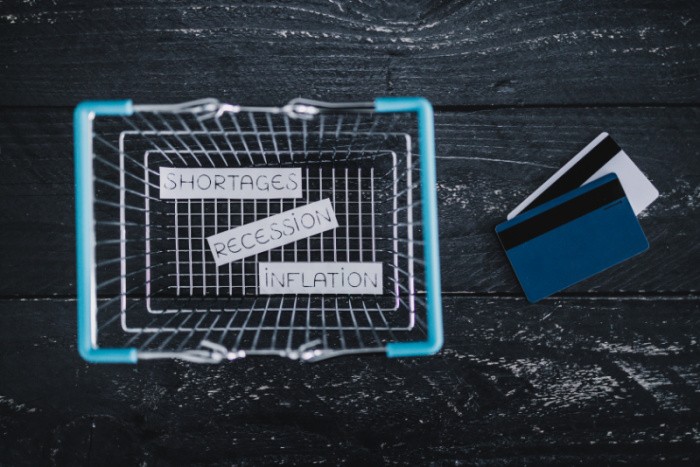

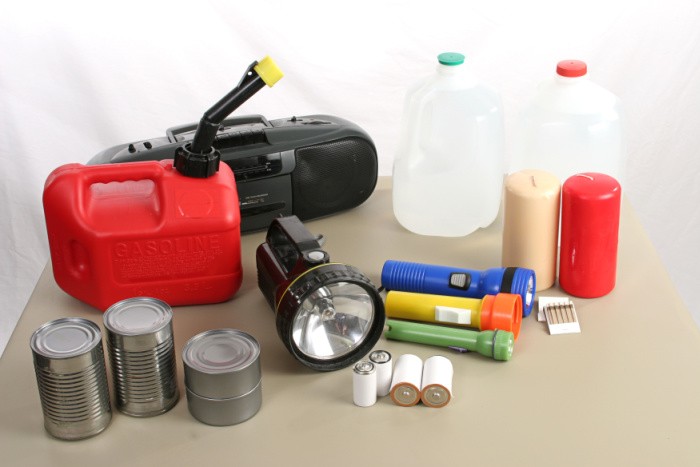

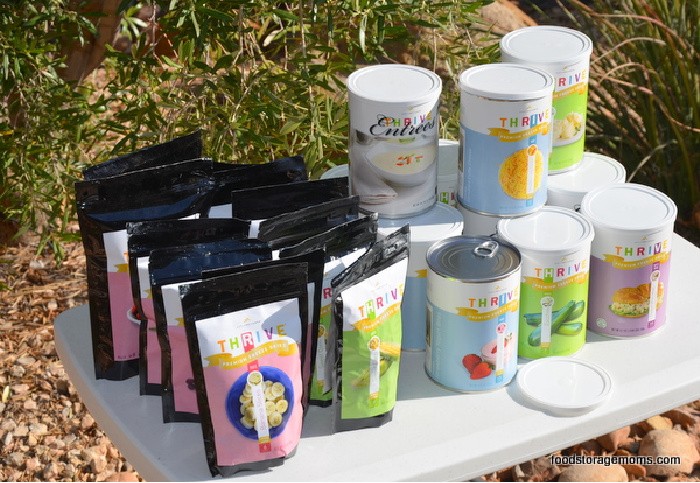
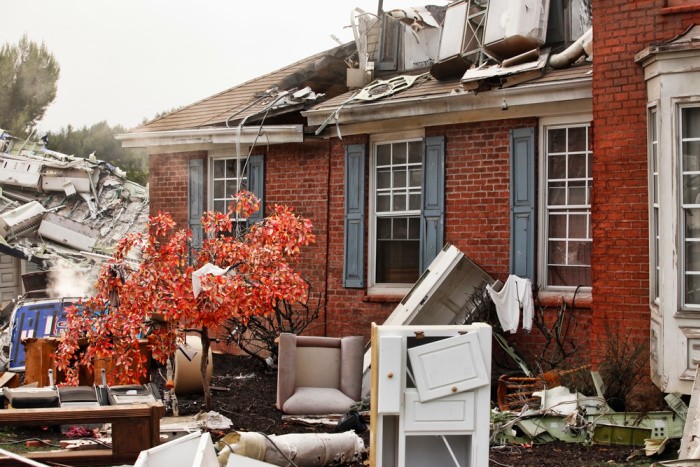

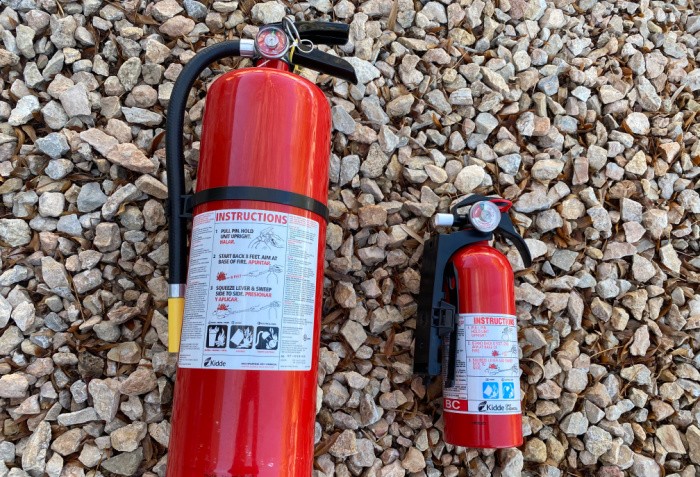

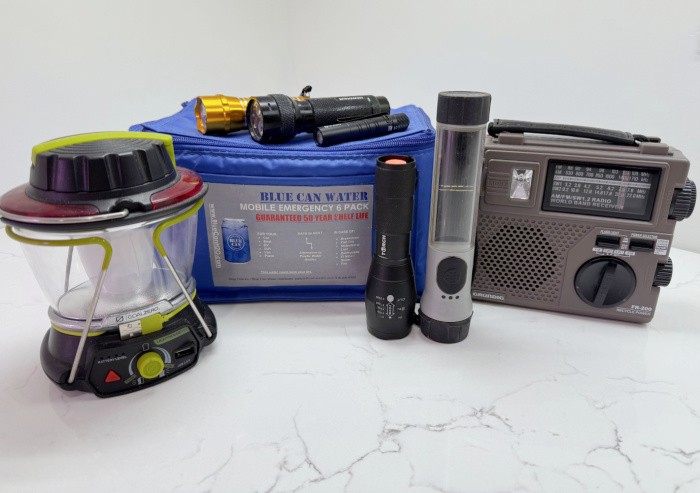
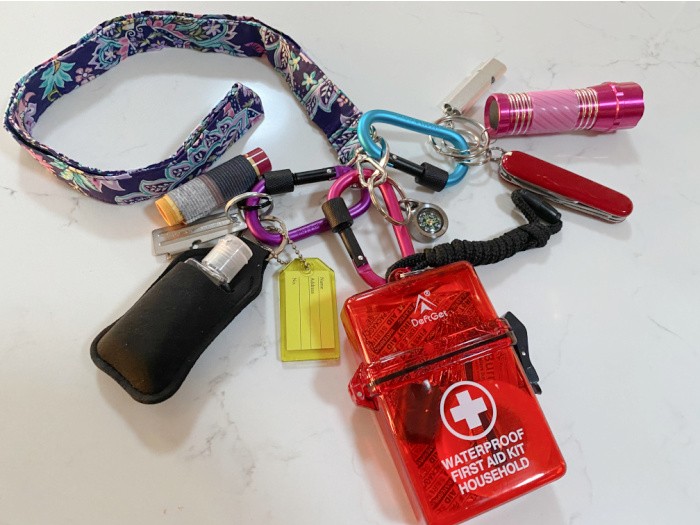










While peaks and valleys are normal within economic timelines what is abnormal and makes this one to come possibly different is the inaction of the political influence to fix it. Obvious paths are being ignored and limits are being tested for an unknown purpose.
This in itself is the reason you should prepare to the best of your ability within your limits. Think longevity and basic sustainability. Hopefully it’ll be short lived and you are in a better position than ever.
Hi Matt, I owned my own mortgage company and was a realtor as well for over 15 years. I follow the housing market big time. My biggest concern right now are interest rates. The feds are trying to slow inflation by raising interest rates. Here are my concerns, back in 2006-2008 or so, the housing market crashed. The biggest in US history, as far as I know. There were investors pushing prices up, paying cash, fraudulent loans, and fraudulent appraisals. Some cities saw home increases in value by 61% in the last two years. Boise and Austin are two of the biggest cities. Well, if interest rates rise above 6% we may see home values drop as they are right now. People who were lucky to get into their over-valued million-dollar homes with a very low interest rate may soon be upside down in their home like back in 2006-2008. People need to realize so much is tied to the housing market. Building supplies, electricians, plumbers, you get the picture. Of course, other areas will then be affected. I hope it is short lived. Hang on for the ride. Linda
I will disagree with you Matt, on one point…..I don’t think limits are being tested for unknown purposes…. I see this as part and parcel of a hard push for control and socialism for their “new world order” Unfortunately, if people don’t wake up soon, our children and grandchildren will pay the ultimate price. God Bless America.
I don’t disagree with the possibility of your assessment. In fact I think it goes much further. I don’t have a good grasp on it yet therefore my “unknown”.
Ideas I’ve got but facts and complete story I’m still missing some pieces
Hi Matt, I feel like I’m missing some of the pieces to the puzzle so to speak. Linda
We are already in recession mode. With prices the way they are, all we are doing is replacing what we use, and we are eating as much as we can out of the garden and fishing so that we can save resources in case something worse happens. We say “yes” to as many extra jobs as we can, and we put it away. We are hunkered down in all respects. We didn’t go on summer vacation this year. We opted to instead do a preparedness camp out at home. We loved it. I loved sleeping outside so much that I had trouble adjusting when we moved back indoors. We tested all our equipment and everyone enjoyed it…even when we turned off the computers for a week and all we had was a solar powered shortwave/am/fm radio for an hour or so a day and solar light for our books, board games and writing. We had such a good time that we want to do it again in winter when we have another week vacation. We live in Florida, so it shouldn’t be any more challenging than our summer vacation.
Hi Debbie, oh my gosh, I love this!! What a great idea not just for a day but for a group and for a week!! Thank you for sharing your story! We all need to practice with our preps! I LOVE THIS!!! Linda
I know having a garden is very important and I have had one or helped my grandma or mom with one but this year
is hard on everyone. I live about 5 miles from the river and I went down because they usually have fresh produce for sale. This year with the heat there is no tomatoes. One of the homes did have a few tomatoes but not enough to buy to can. That house also had a few zucchinis, a few cucumbers, and some potatoes. That is about it. The fields are burning up. The corn harvest looks bad, I seen no pumpkins and very few watermelons. My little garden is struggling I do
have cherry tomatoes but Green beans look bad. All I can do is try again next year. I have been keeping my garden alive with rain water I collected in my barrel but it is getting low too. We are hoping for rain this week.
Hi June, thank you for sharing your story. This is the first year I have not had a garden and it’s so hard on me. I went down to meet a neighbor who is gardening and her garden is struggling big time. The heat here is so bad. It makes me sad for those of us who want to buy produce at Farmer’s Markets and for the Farmer’s trying to sell to us. This heat wave is so bad. People are pulling up their gardens two months sooner than usual. I love hearing you are using rainwater. I LOVE IT! We can only hope and pray next year we will get through it with cooler temps. Linda
Those are things that are prudent to practice at all times. I have one more suggestion. Put in an inline water purifier unit if you can afford to. Water can carry disease, and sometimes even the best water treatment plants make a mistake.
HI Janet, are you talking about Reverse Osmosis? I’m living with my daughter and we do not have one. I will be putting two in my new house. We still do not have a building permit. Darn it! Let me know, you know I love learning new things. And yes, indeed the treatment centers make mistakes. Deadly mistakes. We have seen many in Utah. Linda
Reverse osmosis is really good for a sink, but we have and Aquasana system that cleans the water from our well, and sterilizes it with a UV light. We have to have the UV light changed yearly, just like we do on our furnace.
Husband and I are both retired. We did the best we could while we worked and lived well below our means. Saved, invested, and spent money on things that can make money for us now. People laughed at us for years because we were frugal, but they aren’t laughing now! And yes, we are still frugal…
Hi Paula, frugal is the name of the game. Skills help to save us money works well too! Good job! I love this! Linda
Back when we had our last recession, it provided me the opportunity to be able to set myself up financially. I bought my house as a foreclosure which allowed me to have a mortgage payment less than a car payment. This decision set the path for me to be able to not only live well below my means but to be able to apart from my mortgage have zero debt. In the years since that decision was made, it has allowed me to be able to save enough money for me to live off of for over 3 years if I were to lose my job. That decision also allowed me the opportunity to build up over a year’s worth of what I call my “prepper reserves.” The last recession is one of the major reasons that I prepare as I have seen my employer lay people off or fire people who have been there a while and who were very good and dedicated employees. It was through observation that I learned that nothing is guaranteed and it was up to me to take care of myself and plan for an uncertain future the best way I could. This includes not partaking in voluntary government stimulus programs where the government “gives us money”…why? Because nothing is for free!
Hi Ravenna, you are so right, nothing is free. I love hearing how you set yourself up for a good life. That recession shook up every family in the US and many friends. Nothing is guaranteed in life. We must be self-reliant. Life is good when we take care of ourselves. Linda
I’m old enough to have weathered both inflation and recessions. Periods of high inflation are worse. The best way to avoid economic difficulties in both is to get out of debt.
Millenials and Gen Xers haven’t yet seen the problems of too much debt, but they will learn the hard way–just like we baby boomers did.
I am too. I remember the 80’s recession was brutal.
Hi Ray, I totally agree. You get what I’m talking about being a builder among many other things. I’m waiting to see the next interest rate hike. Most people do not understand how it works. Crazy times. Linda
We are blessed that all 4 of our children were settled in their homes at least 5 years before this pandemic hit. I know 2 are mortgage free, and one sold some acreage so he could take his mortgage down to 15 years. We never carried any debt beyond our mortgage, which we paid off early. Noone understood why we didn’t buy a bigger home, with 4 kids. We are prepared to survive this coming economic hurricane and help our children if necessary, although, I think most of their careers are recession proof. I can no longer garden since just walking is becoming a greater challenge, but I can provide fruit trees and plants to my children who do. We are in the process of sharing the 4th generation of raspberries. Please stay safe and healthy everyone.
HI Chris, what a great example to your family. Great story, and having fruit trees and raspberries, are a bonus!! Linda
My concern is not simply enduring a recession or depression, but being able to survive it long enough for things to improve. And those who earn or have little to begin with will suffer the worse and then a burden is put upon government assistance programs such as food banks as people become needy of them.
The problem is that this situation was artificially created by policies of the current administration and actions taken by politicians and those who run the educational systems and even those in private businesses. And when a group purposely sabotages the system and the status quo nothing can repair itself or can balance be achieved.
So we should prepare, but with food shortages, high gas prices, high car prices, lack of parts, and maybe future rationing and a lack of many other things it is hard for citizens to function much less prep. Some think by investing shrewdly they can weather this storm, but if there is nothing to buy in the stores, nobody to fix, deliver or produce anything, piles of money won’t be worth much. We must buy what we need now in case stores are empty later.
I look at things as if the future was going to be very hard and bleak and I think that’s how we should prepare. That scares people, but the more one prepares, the better off they’ll be. We don’t need the government to care for us, but as law abiding citizens they’re making things very difficult for us to become self reliant. And when people are working against us, it’s a harder climb uphill to stability and prosperity.
Hi Frank, I totally agree with you, it’s going to get harder and harder for those who have not stockpiled and when supplies run out, then what. I hope I’m wrong, but I believe the stores will be empty sooner than later. We were in need of a minor repair on our car and luckily the dealership could find the part. But it took ten days. We felt grateful they could even get the part. Some parts the dealership has had on order for six months. That makes me nervous. Will they really get the parts, who knows? For now, our car is fine. House prices are starting to slow, rentals are ridiculous where I live in Utah. Incomes are not rising enough to cover the high rental costs, the price of food or gas. Crazy times right now, Linda
Hey Linda! Do you have any ideas for those of us that live on fixed incomes?
Although I got an increase the 1st of the year, it’s not enough. Thankfully I have help with medical and food and Rx’s. I use public transportation or walk where I need to go, which usually isn’t too far; my hip surgery has caused me to be more frugal in my jaunts. I try to keep my pantry stocked up, but not being able to go grocery shopping for a few months depleted a lot of my stock but am trying to rebuild it. I’m not afraid of a recession, been through a few. What do you think?
Hi Pamela, I think most people are on fixed incomes right now. Some people make more than others but their expenses may be much more. I agree we have been through several recessions over the years, some worse than others. If you have a neighbor you trust could they pick up some items for your pantry? Being mobile is hard for you so going to food banks may not be an option. Walmart delivers if you pay a fee, I’m not sure what it is. Sam’s Club does too but you have to pay a fee upfront. This is why we must all check on our neighbors, there is always someone in need to pick up cases of water or food. I hope you find a solution in your neighborhood. Linda
Now you have me thinking (Pamela and Linda) that preppers need to promote community building and mutual support as part of our lifestyles and prepping related subjects. I have a pickup and while my Toyota Matrix can really carry a good load, the pickup allowed me to go get some pallets. Now I see just having a car can be an asset to share with those who may not be able to drive themselves.
If those of us who can offer our time and maybe provide a ride or to help someone setup a rain barrel or acquire free pallets to build a chicken coop can do that, it would help those who have a harder time getting around. There are many favors people can do for each other. As I type this other ideas come to mind.
One of my plans is that if I begin to raise chickens or anything else is to allow them to breed freely and then to avoid having to feed a huge flock, I’d offer the extra animals to neighbors and other people to create a community of food raising homes. I know someone who told me she started with 6 chickens and they quickly turned into 60 and she had to get rid of them because it was too much of a burden to feed and care for them all. I’m sure right now, many would buy low priced livestock, trade for it and certainly accept free ones. On our street, all the houses or properties are zoned as agricultural, so we have that advantage and capability. If any family approaches us and I wish they would, we could work together and grow food or raise some small livestock here.
And by sharing, it avoids confrontations due to jealousy and hate driven by guilt and people stealing out of desperation.
Hi Frank, you’re comment is so awesome. I got emotional just reading it. I love hearing how you can help others and enjoy doing it. What a blessing you live on a street that is agricultural. That would be my dream. I’m getting older now so I am downsizing a few things. Life is good when you can help others. Thank you my friend for your comment, Linda
Oh Linda, I’m sorry to hear you haven’t even received your building permit. Got to be very frustrating. I was the general contractor on my home back in ’03 so remember how I had to have my ducks in a row to get it approved quickly. And mine was fairly easy as we already outright owned the land, had a driveway, had an electric pole to stub into and I was doing a 32×80 mfgd home. The last was the easiest thing as a county can’t fuss with specs on one of those. Really my part was measuring off exactly where I’d place the house (site selection), the foundation specs, water well plan, placement and stub over, septic design and placement, electrical stub over, and building the steps perfectly. My county Really doesn’t like self-contracting, so I still had to get everything perfect. Mine was approved in less than 2 hours, done so grudgingly I think. I’d done a little sneaky thing: I took a couple of the secretaries at the permit office to lunch, had them give me a list of what could get me denied (not what would get me passed). Yea, I knew of a few folks who got their permits denied, then had to start all over. Here’s one of the wierd things: I had to first request an address for exactly where I would place the house on our acreage, Before I applied for a building permit. No mailing address, nor mail box, specific to the building site?Denied! Oh, and this county doesn’t give specific reasons for Denial. It is just stamped Denied. So, I got a bunch of tips ahead of time. I only had One thing that the county fussed with and that was the day the inspector was to come out, give me my occupancy permit. I was called, told that they had looked again at my house plan, had decided my ‘den’ could be a possible bedroom so would need another 1000gal septic tank. My septic guy was on-site, so I called my septic designer, had him quick re-draw the design, fax to county. My septic installer then made that change, ordered an extra tank and got ‘er done. Inspector came out at 4pm, signed off on my occupancy permit. Chriminey, I’m dang sure the county thought this would create a problem. It didn’t, other than cost me an extra thousand dollars. What’s funny is that I’m Glad they told me to do this! I now rent out my den to a month to month lodger. Giggle, I went from 4 bedrooms to 5 after all. (3 full bathrooms).
I’m wondering what reason your builder is giving you for not getting your permit? You made these plans to build quite awhile ago and inflation has increased your cost of building, I presume? (Hey, wait long enough for a possible recession and building supply cost might go down.) I am so glad you can stay with your daughter but this has got to be hard.
My house was done in less than 3 mos from my building permit. I used to say we were ‘homeless’ as I’d sold my home the Friday before applying for building permit.
As to how this pertains to a possible recession? I saw that one coming from the housing market back then. And, it’s a lot the same now. Ridiculously high prices, too low interest. Again, I’m real curious as to what’s going on with your permit. I wish you the best.
Hi Wendy, we have the water and sewer permit but waiting on the HVAC and other permits. We are building in our daughter’s backyard. We will need larger gas meters and electric meters but we are still waiting. Yes, hopefully, the costs will come down. If we can get the supplies. Linda